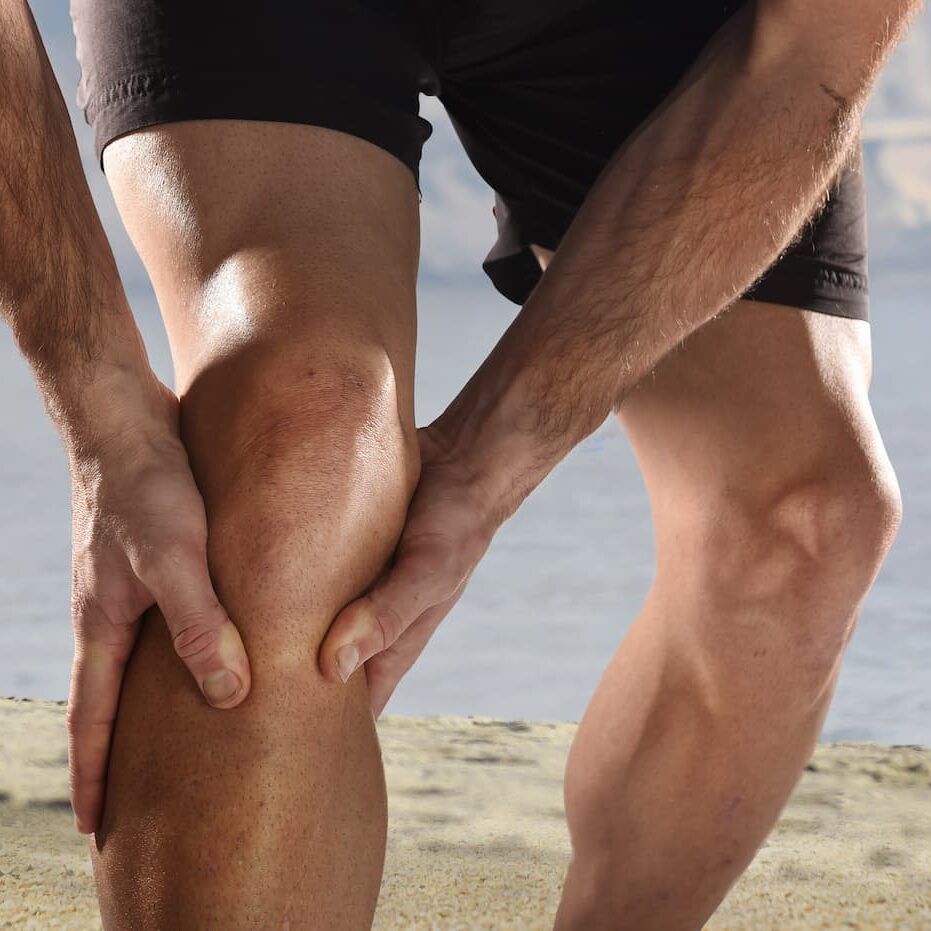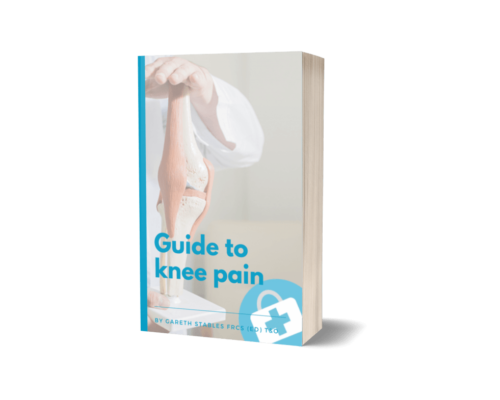How do you know if your knee injury is serious?
Knee injuries are among the most common injuries in sports. With many more people taking part in exercise we are seeing more people coming to the clinic with problems.
Fortunately, for most of the patients I see in my clinic, their knee injuries do not require surgery. If you suffer a knee injury, what are the signs your knee injury is serious? Is it worth seeing an orthopaedic surgeon?
This list is far from comprehensive, but here are seven signs that might mean you have a serious knee injury that possibly requires surgery.
1. Your Knee is Swollen
It might not be a big deal if your knee has a small amount of fluid present. On the other hand, if your knee swells up like a football in the first few hours after an injury, you could have a serious knee injury such as an ACL tear or fracture.
2. You Heard a Pop
I don’t mean a small pop like the one you feel when you crack your knuckles. I’m also not talking about the popping many of you feel under your kneecaps normally when you bend your knees. If you hear or feel a loud, painful pop during an awkward landing or when you get hit in the knee, you could have torn a ligament. Many athletes say that their teammates heard the pop when they tore their ACLs.
3. You Can’t Stand on Your Leg
Extreme pain trying to walk is not unusual after an injury. Many injuries can be serious enough to cause pain when you try to put pressure on the injured leg. It is a sign you should consider seeking medical attention. It could be a fracture (or broken bone).
4. Your Knee Buckled or Gave-Way
If your knee buckled when you landed from a jump or changed direction suddenly, you could have suffered ligament damage, such as an ACL tear. Alternatively, if you experience your knee giving way with twisting or landing movements weeks or months after an injury, you should consider seeing a sports medicine doctor. True knee instability with activities can risk further damage to the meniscus or articular cartilage.

5. Your Knee is Locked
Younger athletes can often tear their meniscus in such a way that the inner, torn fragment can flip into the center of the knee and block the normal movement of their joint. These bucket-handle meniscus tears often require surgery. Your surgeon can push your meniscus back into place and repair it with sutures or anchors. Milder or more chronic forms of knee locking or catching also can suggest you have a meniscus tear.
6. You Can’t Fully Straighten Your Knee
Pain, swelling, and inflammation after acute injuries can all make knee movement difficult. If a patient comes to my clinic days after an injury and I can’t straighten the knee, I do get a little concerned. It can be a nonspecific finding, though I have often found ACL tears, acute meniscus tears, or patellar dislocations.
7. Your Knee Hurts at A Very Specific Point
Patients with meniscus tears usually complain of pain in a very specific spot along the joint line rather than throughout their whole knee. Medial meniscus tears often hurt along the medial (inside) and posterior (back) side of the knee. Lateral meniscus tears often cause pain along the lateral (outside) and posterior aspect of the knee. Likewise, stress fractures usually cause localized pain on the bone at the site of the fracture.
I hope that this list of signs your knee injury is serious is helpful. It is not comprehensive and not intended to replace the advice of your doctor. If anything, I hope you would consider seeing your doctor sooner after a serious knee injury if you have any of these complaints.
How can we help?
Here at the My Knee Doc clinic, we aim to put you front and centre of what we do. We have a great team who will listen to you, help you with your knee problem and guide you through your whole treatment journey. We aim to give you the best possible care from the first time we speak to you, perhaps on your 10 minute call, through your initial assessment in the clinic, to your treatment and your follow-up. We won’t just discharge you once your treatment is complete. We have a complete aftercare package which means you always have access to our team of specialists.



